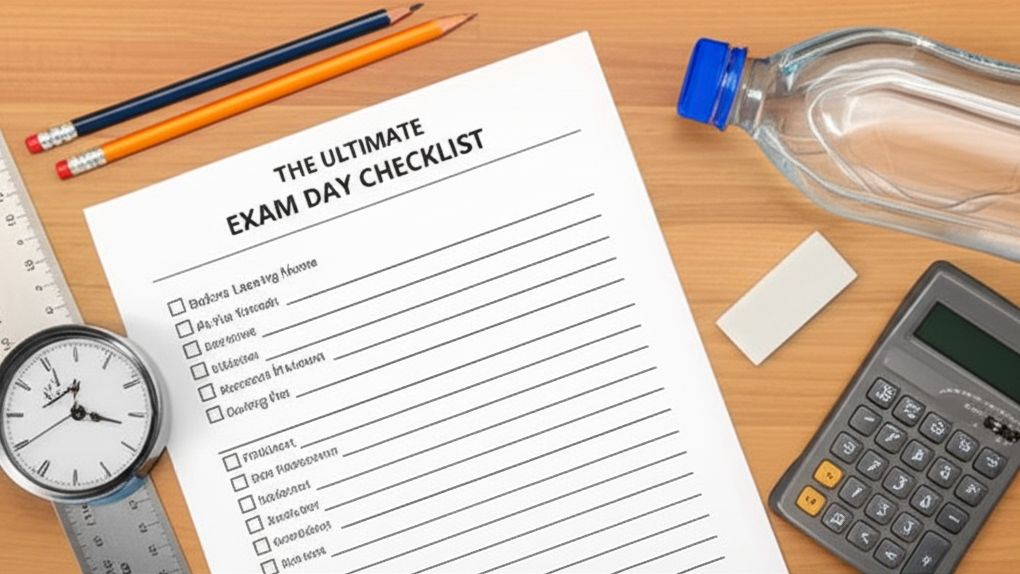
The Ultimate Exam Day Checklist
Hey there, future exam conquerors! Feeling the pre-exam jitters? Don’t worry, we’ve all been there. This checklist is your secret weapon to walk into that exam room feeling confident and prepared. Let’s break it down:
1. The Night Before: Preparation is Key
- Pack Your Bag: Gather everything you need and pack it the night before to avoid a morning scramble. This includes:
- Pens (plural! Always have backups).
- Pencils & Erasers.
- Your ID or any required identification.
- Your exam permit or registration details.
- A clear water bottle (check exam rules).
- Snacks (if allowed, and if you think you’ll need them).
- Any permitted calculators or materials.
- Review Your Notes (Lightly!): A quick skim of your key summaries is fine. Avoid cramming – it’s more likely to stress you out.
- Plan Your Route: Know exactly how you’re getting to the exam venue and factor in potential delays (traffic, public transport issues).
- Get a Good Night’s Sleep: Aim for 7-8 hours of quality sleep. Sleep deprivation significantly impacts cognitive function.
- Prepare a Relaxing Evening Routine: A calming activity, like reading a book or taking a bath, can help reduce stress.
2. Exam Day Morning: Fuel and Focus
- Wake Up Early: Give yourself ample time to get ready without rushing. A calm start sets the tone for the day.
- Eat a Nutritious Breakfast: Fuel your brain with a balanced breakfast. Think complex carbs, protein, and healthy fats.
- Avoid New Information: Resist the urge to cram last-minute facts. It’s more likely to confuse you at this point.
- Review Important Formulas/Concepts (Briefly): If absolutely necessary, just glance at your pre-prepared cheat sheets or summaries.
- Dress Comfortably: Wear clothes that you feel comfortable and confident in. Avoid anything too tight or distracting.
3. During the Exam: Strategy and Calm
- Read the Instructions Carefully: This is crucial! Understand the format, time limits, and any specific rules.
- Plan Your Time: Allocate time for each section or question based on its difficulty and point value.
- Start with What You Know: Tackle the easiest questions first to build confidence and momentum.
- Stay Focused: Minimize distractions. If your mind wanders, take a deep breath and refocus.
- Double-Check Your Answers: If you have time, review your answers for any careless errors.
- Don’t Panic: If you get stuck on a question, don’t waste too much time on it. Move on and come back to it later if you have time.
4. After the Exam: Reflect and Relax
- Avoid Post-Mortem Discussions: Comparing answers with others can increase anxiety, regardless of the outcome.
- Reward Yourself: You deserve it! Do something you enjoy to relax and de-stress.
- Reflect on Your Performance: Take note of what worked well and what you could improve for future exams.
Bonus Tip: Practice Makes Perfect
The best way to prepare for an exam is to practice! Use past papers, practice quizzes, and study guides to familiarize yourself with the format and content.
Good luck with your exams! Remember to stay calm, stay focused, and trust in your preparation. You’ve got this!